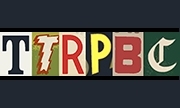Some more thoughts on later sections of The Nights
I've been slowly reading through the rest of the sections. The selection of "works derived from" were of varying degrees of convincingness and I kind of skimmed those. But the afterword by Robert Irwin has turned out to be more intriguing than I expected, and I have enjoyed his rather scholarly analytic take on issues such as whether some of the tales were genuinely of Middle Eastern origin or else betray more European influence. Some of it can be boiled down to infinite are the arguments of mages but worth reading nonetheless.
Two unexpected associations I pulled out (which surprisingly haven't been commented on here) are
1) in connection with Aladdin, Irwin talks about stories of a magic ring which gets lost in a river and then rediscovered sometime later - I''m sure I've read something about that before... and
2) In connection with Ali Baba, instead of a cave full of gold, one precursor version has a table full of wonderful food that gets replenished - much like the table towards the end of the world in Voyage of the Dawn Treader, though in that case the food was beneficial rather than tricksy, except for the stone knife, a magical item which should not have been touched.

 Help offset server costs by donating. This is totally optional. Any overages will go to library fines or new books.
Help offset server costs by donating. This is totally optional. Any overages will go to library fines or new books.

Comments
I’ll read the Irwin part later, but I expect it’ll be an update of his Companion, which I read back in Feb and really liked.
No, I agree it seemed quite ordinary. I wasn't that taken by the Lovecraft one either (and thought the connection was a bit tenuous).
Yes, it's an interesting one. I think you have to look at Christina Rosetti in her context as a mid-19th century poet - she overlapped with William Wordsworth and Robert Burns and all three share some features of how they experimented with poetry.
For example WW and RB both wanted to use vernacular language - RB of course using Scottish dialect, while WW wanted to use "the language really used by men". Both consciously attempted to get away from the previous century's tendency to use complex constructions and elevated diction, which was done to deliberately separate poetry from ordinary speech. This didn't stop WW from using conventional forms (like the sonnet) or conventional rhyming patterns, but a fair amount of his work deliberately steps away from that and is much less formalised - to the extent that his contemporary critics felt that some of it just wasn't proper poetry.
So then we get to CR, overlapping their lives but slightly later in time. She is using here a kind of nursery rhyme theme to convey adult themes of seduction and desire - arguably part of the same trend of using everyday forms rather than special ones. And as you say, it's hard to pick up a regular rhyme or rhythm pattern in Goblin Market - it keeps teasing you with the thought that you've discovered it, but then the pattern you thought you found disappears again. She actually uses some quite sophisticated techniques across the whole, but at the same time keeps the surface looking like a children's poem. I suspect the end result would have constantly vexed and challenged critics of her day.
I'm not convinced that I like the result myself, but it works for me by continually making me reassess what I think is going on - perhaps mirroring Laura's discovery that all was not as it first seemed?